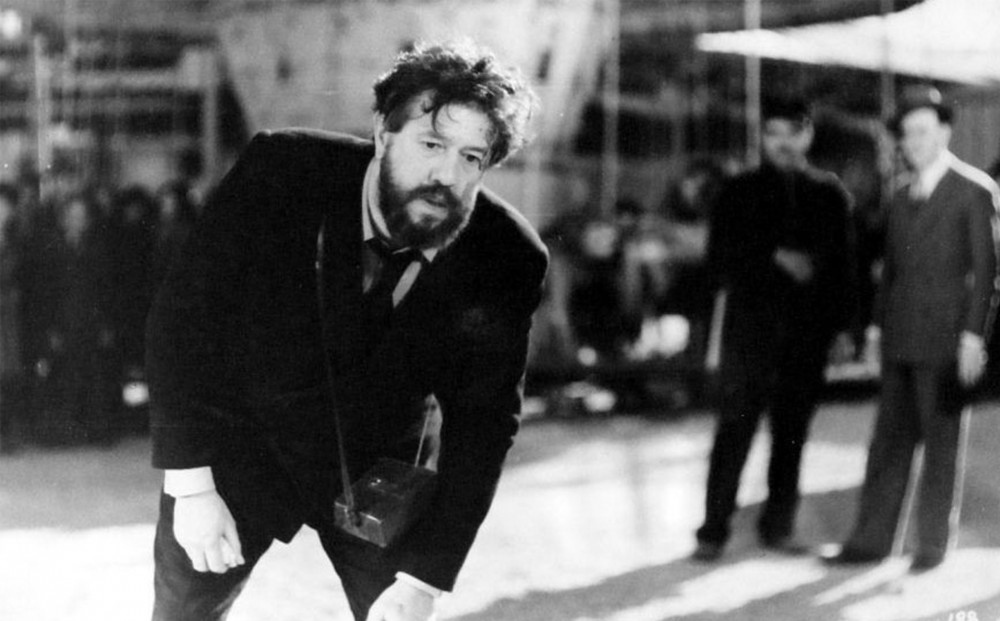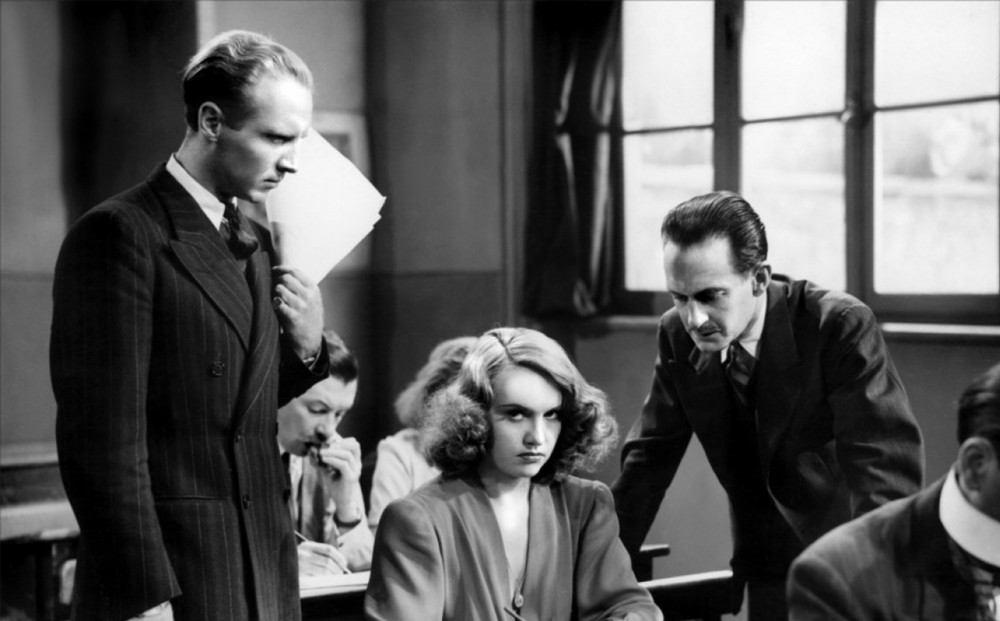PANIQUE & LE CORBEAU
Tuesday, September 4
PANIQUE
| 12:30 4:10 7:50 |  |
(1946, Julien Duvivier) In the end-of-the-tramway-from-Paris suburb Villejuif, suspicion and gossip run rampant. Immediate: last night’s murder of an old maid in that vacant lot near the church. Ongoing: bearded, aloof shutterbug Michel Simon’s (L'Atalante) Monsieur Hire (real name: the “foreign”-sounding Hirovitch). Is he a peeping tom? A pervert? Not this ideal spot for back-from-the-slammer Viviane Romance to start a new life – but then there’s sleazy old flame Paul Bernard hanging around. And her very open window is just across from Hire’s – who proves to have another life. Long unseen anywhere, Duvivier’s first film back in France after a WWII Hollywood stint has steadily gained stature, not least because it’s that rare thing: an adaptation of Belgian crime titan Georges Simenon that’s actually darker than the original (his novel Mr. Hire’s Engagement), with its final shot, amid the village carnival that must still go on, the most callous – and doomed – thrill ride in film history. DCP. Approx. 91 min.
REVIEWS
“Duvivier’s mastery is complete, showing him at his peak.”
– David Shipman
“A sordid intriguingly nasty movie… Duvivier’s psychological thriller is a devastatingly effective job of visual storytelling… in terms of how the sequences are planned, and how they build, it’s an unusual, near-perfect piece of film craftsmanship.”
– Pauline Kael
“The brilliance of Duvivier’s direction, his deceptively random accumulation of details and then his sudden, explosive demonstration of the viciousness and cruelty of a mob and the astonishment and torment of the haunted are of superior and adult quality. Thanks to a brilliant performance by Michel Simon as the victim of cruel abuse, the elements of irony and poignance are strongly evolved… a thoroughly fascinating and sardonic social comment from the screen.”
– The New York Times
LE CORBEAU
| 2:20 6:00 9:40 |  |
(1943, Henri-Georges Clouzot) Fish-out-of-watered in a provincial town, coolly suave Parisian doctor Pierre Fresnay (Grand Illusion, Marius in Pagnol’s Marseilles trilogy) finds himself the target of poison pen letters from “Le Corbeau” (the “Raven” or “Crow”) – but then, slowly but surely, so does everyone else, even as an unknowingly terminal patient gets the bad news, the postmaster confiscates one addressed to his own wife, and letters literally float out of the air in public places. Hysteria and finger-pointing rule, with a suspect’s panicky flight through deserted cobble-stoned streets to the tune of an off-screen lynch mob an unnerving highlight. Made by a German production company during the – never mentioned – Occupation, though from a pre-war original script, Le Corbeau got Clouzot banned from the French film industry for two years post-Liberation. DCP. Approx. 92 min.
REVIEWS
“A HELLBREW THAT HAS NOT LOST A FRACTION OF ITS FLAVOR. Allows itself a strain of acid humor that Sturges or Capra—and Billy Wilder, for sure—would sneakily relish.”
– Anthony Lane, The New Yorker
“PROPULSIVE AND UNSETTLING. Clouzot’s thundering technique and the impassioned performances of his cast lift Le Corbeau’s gossip to something scarifying.”
– Alan Scherstuhl, The Village Voice
“GRIPPINGLY ACERBIC. In Clouzot’s vision, innocence is ephemeral and guilt is eternal… Captures the reality of the Vichy regime and the paranoid culture of self-serving informing that it encouraged. It's a subversive work and masterful suspense thriller that's the equal of anything Hitchcock ever put his name to.”
– Jamie Russel, BBC
“It is to the Occupation what Renoir’s Rules of the Game is to the years before the Second World War, a devastating allegory about the state of the nation as weak people betray friends and neighbors.”
– Phillip French, The Guardian
“As brilliantly nasty as [Clouzot’s later] Wages of Fear and Diabolique or indeed anything this misanthropic filmmaker ever did. (It’s also as surprising as his backstage policier Quai des Orfèvres)... takes clinical pleasure in detailing a small town’s moral disintegration and morbid sexuality... Hypocrisy runs rampant — and extended into the movie’s reception. Clouzot is not just a master of suspense but is also most adroit at implicating his audience. This unflattering social portrait, in which all authority is held up to ridicule, was attacked, and briefly banned, as collaborationist after the liberation. Seen today, seems less an apology for, than an exposé of, occupied France.”
– J. Hoberman, The Village Voice


